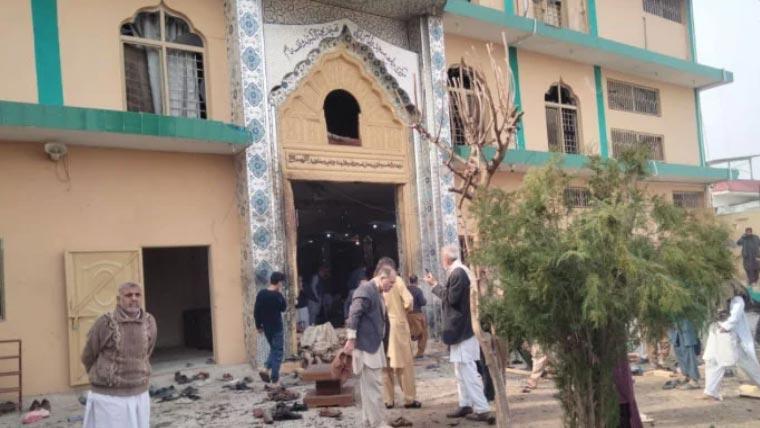In the past, disputes between provinces over fair distribution of water were common—and today, not much has changed


Dr Lubna Zaheer
Who can deny the importance of water? It is not only essential for life—it is life itself. Just close your eyes for a moment and imagine having to live without water for a single day. What kind of day would that be? Undoubtedly, it would be one we wouldn’t soon forget.
Truth be told, despite being aware of water’s immense value, we don’t really appreciate it as we should. I say this with confidence because, whether individually or collectively, we do not seem particularly committed to conserving it or using it responsibly. For years, we’ve been hearing about the looming water crisis. For years, we’ve engaged in long and fruitless debates over the construction of dams. For years, we’ve lamented the massive wastage of water. But what practical steps have we taken to address the issue?
The reality is that the same conversations we were having decades ago are still ongoing today. In the past, disputes between provinces over fair distribution of water were common—and today, not much has changed. Recently, the province of Sindh has expressed concerns regarding new canals being developed under the "Green Pakistan Initiative" overseen by the Pakistan Army.
We already have more than enough issues to quarrel over—must we now add water to that list? Back in our school days, we used to hear that the wars of the future would be fought over water. Whether that will come true globally remains to be seen, but within our own country, it seems we are already on that path.
This matter should be resolved through constitutional and legal forums like the Council of Common Interests (CCI). Must we drag politics into every issue and turn matters of public welfare into street slogans and rallying cries?
Beyond the political or national dimension of this issue, there is also a public aspect that is equally critical. It has become our collective tendency to shift all responsibility for even the smallest issues onto the government. We blame politicians and absolve ourselves entirely.
Yes, it is the government's duty to build dams and ensure water storage—but as citizens, don’t we have even the slightest responsibility? Have you or I ever tried to reduce water waste in our homes? Have we ever paid attention to the excessive use of water in our kitchens, bathrooms, lawns, or garages?
I doubt it. Most of us leave the tap running while brushing our teeth. Men shave while water pours down the basin. In winter, we take long hot showers just for the pleasure of it. In summer, we freely waste cold water. Whether it’s washing dishes or cars, overuse of water has become a habit.
Is it not our duty to play our part in addressing the water crisis? Instead of merely cursing the rulers, shouldn’t we reflect on our own behavior? After all, we have full freedom and authority to change our habits at home.
As Muslims, we must also remember that wasting Allah’s blessings is a grave sin and a form of ingratitude. Do we really believe that the abundant water we enjoy is available to everyone? Absolutely not.
We're not talking about people in some other world. In many parts of Pakistan—such as Tharparkar in Sindh; Cholistan, Dera Ghazi Khan, and Rajanpur in Punjab; Kharaan, Chagai, and Awaran in Balochistan; or Kohistan, Tor Ghar, Battagram, and Shangla in Khyber Pakhtunkhwa—people, especially women, walk for miles just to fetch a few pots of water. Half their lives are spent walking in search of water. Ask these people what water really means.
If only we could remember those suffering without water before we so carelessly waste it.
Just a few days ago, I came across a news report. In light of the water shortage, the Punjab government has banned the opening of new car wash stations and ordered the closure of illegal ones. Even washing cars at home has been prohibited. While the reasoning is understandable, one does wonder how such a ban will be monitored in private homes.
It was stated that washing a single car consumes around 400 liters of water. The Punjab government has also made it mandatory for all service stations to install water recycling systems, failing which they will face legal action.
On the face of it, these are positive steps. They will help curb water wastage. Many countries around the world already have such recycling systems in place. For example, Singapore, Australia, the Netherlands, and South Africa have all addressed water scarcity using technology and public awareness campaigns.
I was recently reading about how Israel has tackled its water shortage. Using advanced technology, the country recycles over 80% of its used water for agriculture and industrial use. Israeli experts even introduced the world to drip irrigation—a system that delivers water directly to the roots of plants, minimizing usage.
Pakistan must also come to terms with the seriousness of this issue at both individual and national levels. It is critical that we formulate a clear strategy and take immediate, practical steps. For decades, the Kalabagh Dam has been mired in controversy. Meanwhile, India continues to build one dam after another. And here we are—barely paying attention.
It is imperative that we set aside our political, regional, and ideological differences and sit together to find a solution. Otherwise, the day is not far when we may lose this priceless blessing of Allah—and by then, it might be too late to regret our negligence.

-- The writer is a professor and analyst specializing in media and communication studies. She can be reached at lubna.zaheer91@gmail.com
Disclaimer: The views expressed in this article are those of the author and do not necessarily reflect the official policy or position of www.gnnhd.tv

YouTube now blocking background playback on mobile browsers
- a day ago

I don’t hate the robot barista like I thought I would
- a day ago

Pakistan committed to boost ties with Uzbekistan in diverse fields: President
- 8 hours ago

Department of Justice appeals Google search monopoly ruling
- a day ago

Aluminium: Why Google’s Android for PC launch may be messy and controversial
- a day ago

Borderlands 4 for Switch 2 is on ‘pause’
- a day ago

ICE invades Minnesota and Minnesotans fight back
- a day ago

The quiet reason why Trump is losing Gen Z
- 20 hours ago

Security forces kill 24 Indian backed terrorists in Khyber Pakhtunkhwa operations
- 15 hours ago

31 martyred, 169 injured in Islamabad suicide blast
- 8 hours ago

You need to listen to M83’s icy post-rock record Dead Cities, Red Seas & Lost Ghosts
- a day ago

PM Shehbaz invites Uzbek firms to invest in Pakistan
- 8 hours ago


.webp&w=3840&q=75)
.jpg&w=3840&q=75)






